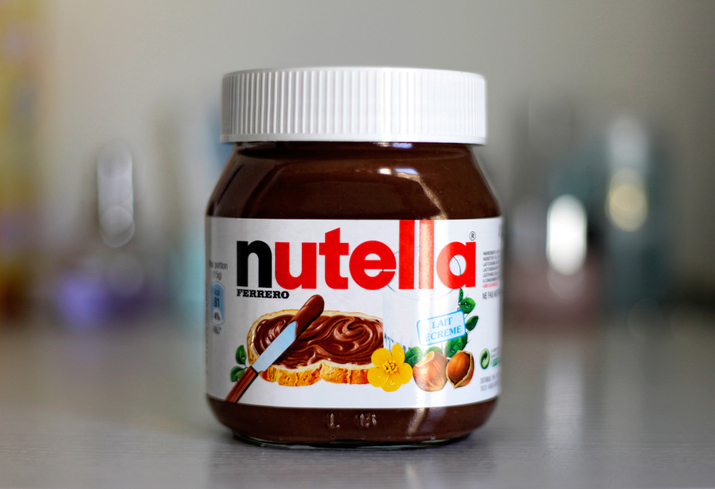On Tuesday, February 19th, the world’s largest Nutella factory, located in Villers-Ecalles, France, temporarily shut down due to a “quality defect” in the production line. In a statement released by Nutella’s parent company Ferrero, the defect was detected in the “line of roasting and grinding nuts.”
As of February 25th, the factory has reopened — however, we’re still feeling a bit concerned about what exactly went wrong.
“This defect does not correspond to our quality standards, so we decided to temporarily suspend the activity of the factory,” Ferrero said in the February 19th statement via CNN. “This measure, taken in the name of the precautionary principle, will enable us to carry out further investigations.”
Further investigation into the defect affirmed that no finished product made by the Villers-Ecalles factory presented a health risk, nor were any affected Nutella products currently on the shelves. Therefore business returned to normal on the 25th.
“All concerns have been fully lifted,” Ferrero France said Friday February 22nd, via NDTV. “We can say that no products currently on the market are impacted by the situation and that the supply to our customers continues without interruption.”
Thank goodness.
Nutella, the popular creamy chocolate hazelnut spread, was created by Pietro Ferrero in 1946 after World War II created a cocoa shortage in Italy.
He substituted some of the cocoa needed for pastry fillings with hazelnuts, and Nutella was born.

Although there are other Nutella factories in the world, we’re glad the Villers-Ecalles factory is back up and running. What would we do without our daily dose of Nutella?
— Chintan (@Teh_Diver) February 22, 2019
No Nutella, no future. That’s pretty much it.
Because we all know that Nutella is what makes the world go round. Seriously!
Go put nutella on a waffle and tell us miracles don't exist
— BREATHE CAROLINA (@BreatheCarolina) February 27, 2019
Have you seen all the lovely creations you can make with Nutella? They’re…so…beautiful.
Woah… WOAH!
Nutella-stuffed churros? God is real.
[video_quote pvideo=”pL2vdNCF” video=”pL2vdNCF” text=””]
This Nutella milkshake is served in the jar. Genius.
This can’t be legal. This is just too good to be true.
Ok. Ok. Ok. Holy Shit. Let’s walk you through this. Chocolate Chip Cookie topped with: Oreo cookies. Nutella. Roasted Marshmallows. Cookies & Cream. And Gold Bitch. Delicious. #beyondreproach @betterthanyourmothers on instagram pic.twitter.com/BMbaFmtE8q
— Carl Ruiz (@carlruiz) February 25, 2019
Every song Harry writes is probs about Nutella.
What other kind of love story is there?
We think you mean who wouldn’t try this Nutella pizza.
And the answer is no one.
No one.
Who would try this Nutella pizza??? Lmaoo pic.twitter.com/vQVAC4d7Ey
— kayla (@iKaylur) February 23, 2019
Definitely not enough. But we’ll take it anyway.
THE. TINIEST. NUTELLA. BOTTLE. pic.twitter.com/kD5LxVw734
— JaneTV, JaneDSTV, Jane_DS (@JaneTV) February 27, 2019
Kitchen table, newspaper, television. It goes great on anything.
You know you’ve reached a certain level of diet breaking when you’ll put Nutella or peanut butter on anything and eat it; live chicken, pot plant.
— L(assitude) (@lmwortho) February 25, 2019
And honestly, it’s worth the breakouts. Sorry not sorry, skin.
Hm…well…it depends! Okay?!
Unpopular opinion: people who eat Nutella straight out of the jar are emotionally unstable
— Leah Sullivan (@leahsullx) February 23, 2019
Thankfully, Ferrero knows how to swiftly handle an upset in quality and we won’t have to go without our precious Nutella any time soon.
Phew!

